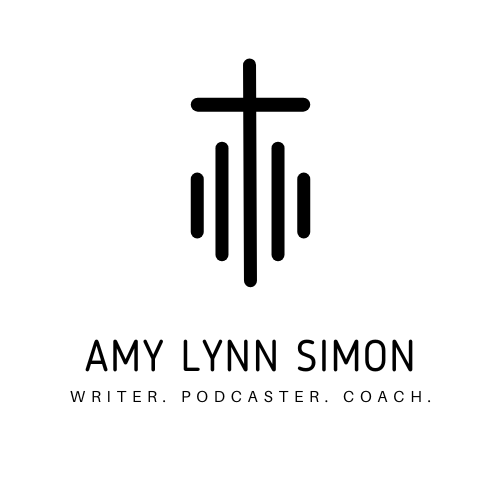Establishing a Practice of Reflection
How is your life going? Is the life you’re living the life you want to be living? The life God has called you to live?
The first step in even answering that question is to cultivate a practice of reflection. The first step in the BUILD method of growing in our faith is Be aware, which starts with reflection.
The idea of reflection is so contrary to our “always on the run - never stop” culture. But if we want to live life intentionally, in line with God’s Word and in a way that brings us joy and satisfaction, we must take time to reflect.
What does that look like?
As I’ve mentioned before, I enjoy reflecting weekly. I sit down sometime over the weekend and ask myself just a few questions:
1. What were my “wins” from the past week?
What are some things I accomplished that I’m happy about? They aren’t always big, monumental tasks - sometimes they’re small things that I’ve been putting off for a long time. Things like making the doctor’s appointment, sending the message, or getting outside for a walk on a consistent basis. Wins don’t have to be easily quantifiable, either. They can be things like not getting impatient with my kids as much, spending more time with my husband, or managing anxiety more effectively.
However big or small, it’s helpful to acknowledge and celebrate the things that have gone well.
2. What is working?
This question is purposefully vague to allow me to consider all different areas of life. We tend to separate our lives into categories - spiritual, work, family, physical, emotional… It can make it easier to think about that way, but we can forget that we are one unified person and all the different pieces of our lives overlap and affect each other. How we’re doing spiritually affects how work is going. Issues with our temper might be caused by what we’re eating or not getting enough exercise or because of stress at work. Maybe my frustration with my kids has its root in conflict with my husband.
So when I ask myself this question, I leave it wide open to mention anything in any of those categories that is working well. But to help get your own juices flowing, here are some other ways of thinking about it:
What’s working at work? Is there a work process that’s going well? Habits you’ve developed that are making things go more smoothly? Ways of interacting with your boss (or not interacting with your boss)? Ways of interacting with your coworkers? Things you’re doing during your lunch break? Or on the commute to or from work?
What’s working at home? A bedtime or waking time that has been working? Eating habits? Ways of interacting with your kids or spouse? How you spend your free time? Cleaning routines? Cooking plans?
How about your spiritual life? Is there a Bible reading plan that you’re enjoying? A church ministry you’re serving in that’s a good fit? What’s working in your prayer life?
How about physically? Is there an exercise routine that’s working? A different eating plan that’s giving you more energy? Is an earlier bedtime helping you feel more rested in the morning?
And emotionally… Is there a practice you’ve used to improve your mood that has worked? A method of managing anxiety or depression that’s going well?
3. In the same way, which of those areas DIDN’T work?
Now, that looks like a really long list. I don’t think through all of those things every week. But that’s what’s in the back of my mind as I consider what worked and what didn’t work the previous week.
As we spend time in reflection, invite God into the process. We can ask Him to show us what worked and what didn’t. What are the things that He wants to put His finger on? God is the perfect patient teacher. He thankfully doesn’t confront us with all of our dysfunction at once, but gently guides us through what He wants us to notice and focus on.
If you choose to reflect daily and use the “Examen” as your guide, then pausing to ask God to show you what He wants you to notice about the day is part of that process. To learn more about the Examen, check out my blog post here.
The final question I ask myself is, “What am I learning?” What am I learning about myself, about God, about others?
Why is all this helpful? Because we can’t move forward and make progress in our faith and life if we don’t first know where we are.
Do you have a practice of reflection? What does it look like? How has it worked for you?

